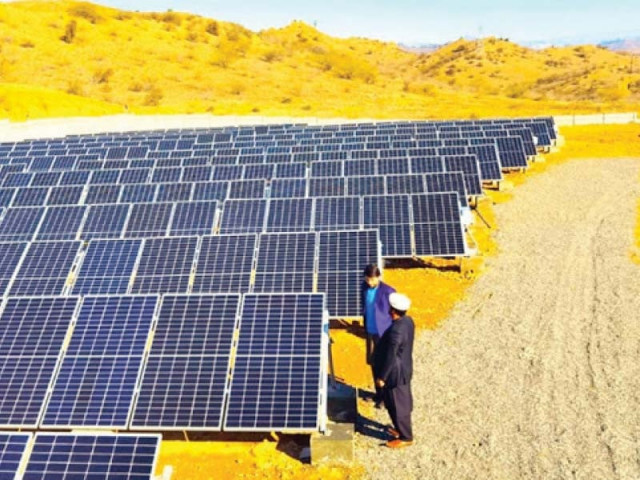Centre seeks control over energy firms
Wants free hand in regulatory decisions without involvement of provinces

The federal government is seeking a free hand in administrative control and making decisions for energy companies without the involvement of provinces.
The federal government claims that it has exclusive jurisdiction and can make decisions for the oil and gas sector, except for formulating new or amending the existing policies.
Khyber-Pakhtunkhwa (K-P) and Sindh have raised questions over the decisions made by the Centre pertaining to the oil and gas sector. K-P has also objected to the decisions of the Economic Coordination Committee (ECC) of the cabinet.
The federal government has no objection to the role of provinces in the existing oil and gas policies. However, it wants a free hand in regulatory decisions and administrative control over the management of oil and gas enterprises without any involvement of provinces.
In this regard, the Petroleum Division is seeking the consent of provinces in the Council of Common Interests (CCI) – an inter-provincial committee.
It proposed that the CCI should have a role in framing new and amending the existing oil and gas policies. However, the regulators should be free to make regulatory decisions in the hydrocarbon sector.
It argued that the federal government had exclusive jurisdiction in dealing with the administrative matters of oil and gas entities and those matters should not be brought before the CCI.
The CCI, in its 34th meeting on November 24, 2017, had considered a summary submitted by the government of Sindh on the subject of oil and gas and the representation made by the K-P government.
It was agreed in the meeting that without reopening past ECC decisions, the Ministry of Energy would prepare a summary on the oil, gas and power sectors to delineate their day-to-day and policy matters.
The prime minister told the minister for power to apprise the CCI of the legislation on the subject under consideration in parliament.
Article 154 of the Constitution of Pakistan 1973 deals with the functions and rules of procedure for the CCI, which reads that the council shall formulate and regulate policies in relation to matters in Part-II of the Federal Legislative List and shall exercise supervision and control over related institutions.
The interpretation and implementation of this article has been debated at various forums.
The issue of oil and gas-related decisions of the ECC was earlier raised by the K-P government through a letter sent to the Cabinet Division. Later, the matter was placed before the ECC in its meeting held on April 12, 2012.
The ECC discussed the viewpoint of K-P government and decided that the matter concerning jurisdiction of the CCI and the ECC vis-a-vis Part-ll of the Federal Legislative List may be placed before the CCI for policy decision.
The petroleum ministry also sought the advice of Law and Justice Division about Article 154 of the Constitution.
The Law and Justice Division said that the policy decisions requiring new legislation or which affect the existing legislation “are required to be placed before the CCl for its approval”.
However, it said, the affairs relating to day-to-day functions of the federal government and related institutions “are not required to be placed before the CCI”.
In compliance with the views of Law and Justice Division, the Petroleum Division sent all cases to the CCl for the approval of policies including the Petroleum (Exploration and Production) Policy and all subsequent amendments.
They also included the Marginal/ Stranded Gas Fields – Gas Pricing Criteria and Guidelines, Tight Gas (Exploration & Production) Policy including subsequent amendments, Low BTU Gas Policy and LPG (Production & Distribution) Policy.
However, the matters other than the policy and relating to day-to-day affairs of the federal government are being submitted to the federal cabinet and committees of the cabinet, ie ECC, for executive decisions.
The Petroleum Division now claims that pursuant to Article 97 read with Article 142(a) and Clause 2 of Part-ll of the Fourth Schedule (Federal Legislative List), the federal government has the executive authority with respect to oil and gas; liquids and substances declared by the federal law to be dangerously inflammable.
Published in The Express Tribune, May 15th, 2022.
Like Business on Facebook, follow @TribuneBiz on Twitter to stay informed and join in the conversation.











1724319076-0/Untitled-design-(5)1724319076-0-208x130.webp)






COMMENTS
Comments are moderated and generally will be posted if they are on-topic and not abusive.
For more information, please see our Comments FAQ